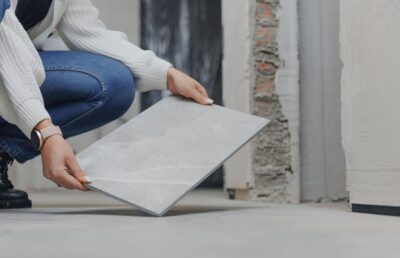In the construction industry, materials play a pivotal role in ensuring structures’ longevity, safety, and aesthetic appeal. Among these materials, porcelain stands out for its durability, resistance to wear, and design versatility. However, the quality of porcelain can vary significantly, making it crucial to conduct thorough testing. This underscores the indispensability of certified porcelain testing.
Read on to learn the importance of certified porcelain testing in construction.
- Ensure Quality And Durability
The main objective of certified porcelain testing is to ascertain its quality and durability. This involves rigorous procedures to test the material’s strength, density, and resistance to moisture, temperature changes, and chemical exposure. High-quality porcelain should exhibit exceptional durability and be capable of withstanding the rigors of both residential and commercial environments.
Hence, for those in the construction industry, conducting certified porcelain testing from reliable service providers would be invaluable as it offers a comprehensive assessment of porcelain products to ensure they meet the highest quality and performance standards. These evaluations encompass tests from determining the material’s strength and moisture resistance to evaluating its aesthetic characteristics.

- Ensure Safety Standards Compliance
Certified porcelain testing plays a crucial role in ensuring safety. It rigorously assesses compliance with established safety standards in constructed environments. This process notably includes the examination of porcelain tiles’ slip resistance, a vital attribute for safeguarding against falls and accidents, particularly in moisture-prone zones like bathrooms and kitchens.
Manufacturers and builders can significantly lower injury risks by strictly adhering to these safety benchmarks. Consequently, this meticulous adherence to safety protocols fortifies the integrity of construction projects and instills a sense of security and well-being among occupants and users of the spaces.
- Offer Aesthetic Consistency And Appeal
The aesthetic allure of porcelain lies in its remarkable ability to blend diverse designs, hues, and textures, making it a favored choice for adding elegance and character to spaces. Certified porcelain testing can meticulously evaluate these visual qualities, ensuring uniformity in color and pattern across batches. This consistency is crucial for architects and designers, ensuring the final installation matches their original vision without unwanted variations.
Such precision in aesthetic attributes enables the creation of cohesive and visually appealing environments, which enhances the overall design integrity of construction projects.
- Has Environmental Considerations
In an era where environmental stewardship is paramount, material testing laboratory extends beyond mere quality checks to include a thorough evaluation of its ecological footprint. This scrutiny assesses the sustainability of production methods, recycling potential post-use, and impact on indoor air quality. It ensures the material meets stringent environmental criteria. Such rigorous assessments are instrumental in steering the construction industry towards more eco-friendly practices.
Porcelain passing these environmental tests supports global sustainability efforts. It meets consumer demand for eco-friendly materials, fostering a greener construction future.
- Has Economic Implications
The strategic investment in high-grade porcelain verified by reputable laboratories carries notable economic advantages that manifest over time. The initial cost of premium materials may exceed that of standard ones. Yet, certified porcelain’s value lies in its durability and low maintenance needs. These characteristics drastically curtail the frequency and necessity for maintenance or replacement activities, offering a pathway to significant cost reductions in the lifecycle of a project.
Thus, certified porcelain becomes a cost-effective choice for various projects, from commercial to residential. The economic rationale behind choosing certified porcelain encompasses long-term savings and value retention.
- Enhance Reputation and Trust
The decision by manufacturers and suppliers to provide certified porcelain products serves as a powerful testament to their dedication to excellence and safety. Such a commitment is not merely about adhering to industry standards but about surpassing them, thereby cultivating trust with clients, constructors, and design professionals.
In the fiercely competitive landscape of building materials, this trust transforms into a valuable currency, potentially leading to heightened customer loyalty and a fortified brand presence. The ripple effect of this trust is profound, encouraging a virtuous cycle of quality assurance and customer satisfaction, which collectively contribute to an enhanced market standing and reputation.
Conclusion
With the information mentioned above in mind, the importance of certified porcelain testing in construction can’t be overstated. It’s a critical process that ensures the quality, safety, durability, and aesthetic appeal of porcelain used in building projects. By adhering to rigorous testing standards, manufacturers and builders can deliver products and structures that stand the test of time, meet safety regulations, and satisfy the aesthetic desires of end-users. As such, certified porcelain testing is a cornerstone of modern construction practices, ensuring that the built environment is beautiful and built to last.












